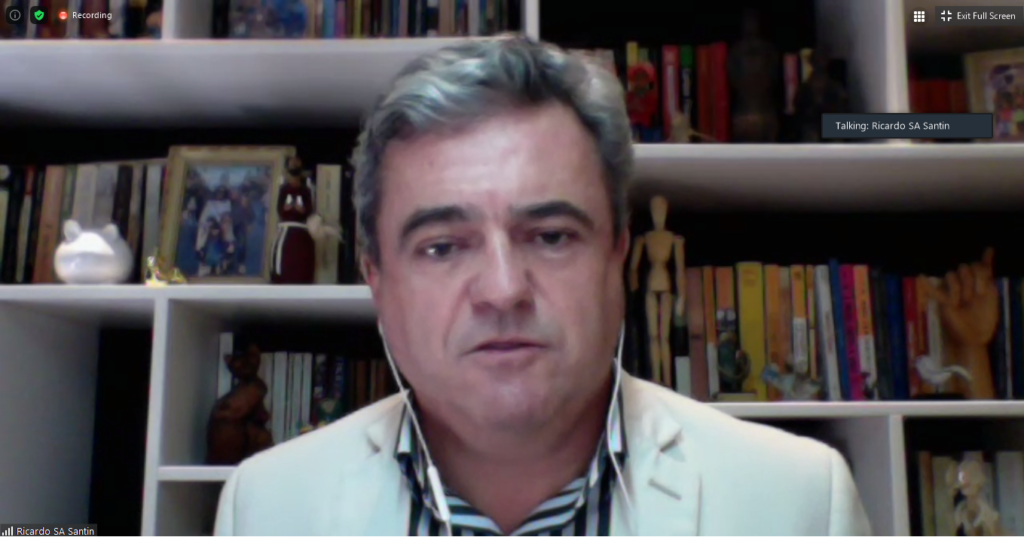São Paulo – The Arab bloc lost its position as leading importers of poultry from Brazil. Now, Asia is first. The decline was driven by Saudi Arabia’s local production strategy, the Brazilian Animal Protein Association (ABPA) reported, and the decrease in tourism in Dubai, United Arab Emirates, and religious tourism, such as the pilgrimage to Mecca, due to the coronavirus pandemic.
According to Luís Rua, ABPA Markets director, the Arabs remain the leading importer of whole chickens from Brazil. “But year to date, Asia has surpassed the region, accounting for approximately 40% of the Brazilian poultry exports, and considering all products, whole chickens and cuts, around 33% goes to the Arab bloc,” he told ANBA during a press conference on Wednesday (9).

The shrinking of the market share, Rua says, is related to the shrinking of sales to Saudi Arabia and the UAE, the top Arab buyers of poultry from Brazil. “It was largely due to the decline in tourism, both in Dubai and Saudi Arabia, but we’ve seen that over the last three months, since the COVID-19 cases have decreased in the region, consumption has started to increase again, and our exports returned to the stage that they had always been, around 40,000 to 45,000 tonnes in Saudi Arabia and 25,000 to 30,000 tonnes in the UAE, which is a good news and shows a good prospect for 2021 in these two markets,” he reported. These are the monthly figures.
Saudi Arabia
Year to date through November, Saudi Arabia purchased 418,800 tonnes of poultry from Brazil, down 2% from a year ago, and remains the second largest importer for the second year in a row, behind China, which remains first at 615,700 tonnes imported, up 20%.
During the press conference, ABPA chairman Ricardo Santin (pictured above) told ANBA that Saudi Arabia has purchased less from Brazil since the last year because of a domestic decision to encourage local production. “Brazil is willing and able to supply Saudi Arabia as our largest importer again. That’s their decision. Brazil won’t force the sale or engage in dumping. We sell what they want to buy. Saudi Arabia had always been our largest buyer and decided to have a sustainable local production, and we respect the Kingdom’s decision. But we are ready and would be happy to see Saudi Arabia becoming our largest importer again,” he said.
Santin emphasized that Brazil remains the world’s largest halal poultry producer. “Brazil remains devoted to be the Middle East’s great partner as we’ve sold them millions of tonnes in the last 40 years. We will continue being partners regardless of the situation, whether they are our greatest market or not, they will always remain important to Brazil,” he said.
The UAE came in fourth in the ranking of largest importers of poultry from Brazil at 272,200 tonnes shipped year to date through November, down 14% from a year ago. Yemen ranked tenth at 99,800 tonnes imported, up 5%.
Overview
Year to date through November, Brazil exported 3.849 million tonnes of poultry, up 0.7% from a year ago. Revenue reached USD 5.54 billion, down 13% due to the rise of the dollar. ABPA forecast that annual exports remain equal or increase by 0.5% by the end of December compared to 2019.
“We expected a 3% growth in poultry exports and will remain at 0% to 0.5%. We are good despite the pandemic, as we’ve maintained production and exports,” Santin said. The chaiman added that domestic consumption increased and mentioned the decrease in financial resources and the rise on the beef prices as the main factors.
In November, the country exported 350,700 tonnes, up 5.6%, and fetched USD476.8 million, down 11.3% from a year ago.
Eggs
The UAE is the leading importer of eggs from Brazil, accounting for 44% of the country’s exports. Year to date through November, it purchased 2,124 tonnes of eggs from Brazil, down 47% from a year ago. ABPA reported that the industry was resilient and managed to maintain the production and exports during the pandemic. The association estimates a 5% growth in production and a 50% increase in egg exports for 2021.
New markets
ABPA talked about the opening of new markets in 2020. They included Morocco, which opened up for poultry genetic material, and Egypt, which opened up for processed poultry products.
Rua told ANBA that this is a major step in the trade relation with Egypt. When our poultry products managed to break into Egypt, this shows their confidence in our exports, and Brazil introduces this highly value-added product. Egypt is one of our 15 top markets for unprocessed meat, and this is a possibility that opens up for us to export processed poultry products as well,” he said.
About Morocco, the director says this is a partnership that gets established between the countries. “In the case of poultry genetic material to Morocco, we provide genetics for them to develop their own poultry farming, so we expect to break into their unprocessed poultry market as well. Now we export very little and it would be an interesting market to advance on,” Rua asserted.
Translated by Guilherme Miranda




